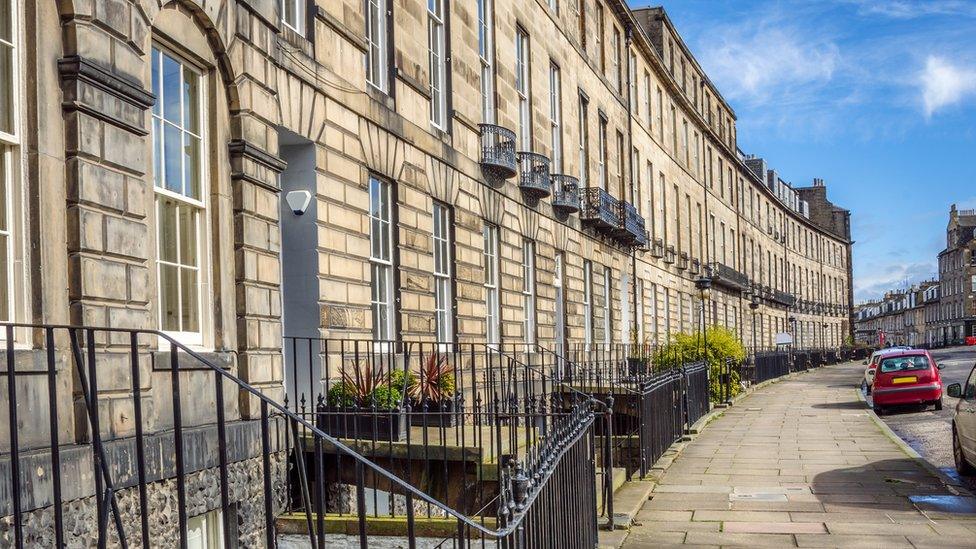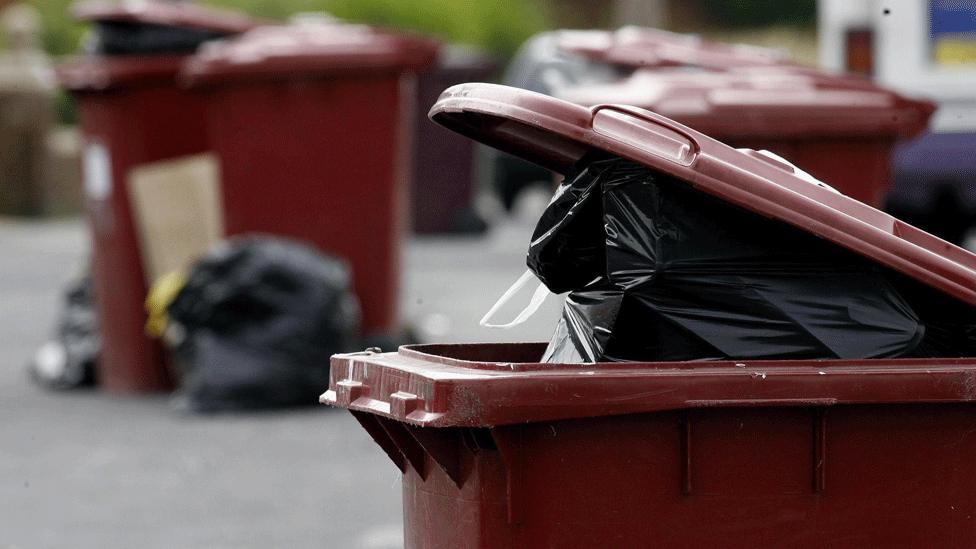Property tax reform call to boost Scottish council funding
- Published
- comments

The report calls for more funds to be generated locally through an overhaul of the property tax system
A new system of property tax and environmental charges should be introduced to boost Scottish council funding, according to a report.
The joint paper from Unison and the Jimmy Reid Foundation calls for a "fundamental review" of funding.
It recommends moving towards a "more progressive" system which would shift the burden onto property and land owners rather than council taxpayers.
The Scottish government said its own reforms would "empower" councils.
'Financial pressures'
Mike Kirby, Scottish secretary of Unison, said the balance of funding for local services had changed over the years.
He said that approximately 50% of the funding used to come from national government, with 50% raised directly by local authorities.
However, he said 85% of funding now came from central government and 15% was raised directly by local authorities.

"Together with an overall reduction in funding, during a period of austerity, this has resulted in severe financial pressures and impacted upon the quality and delivery of vital public services," he said.
"Politicians in all spheres must create the time and space for a fundamental review of funding local government.
"This report is a contribution to that essential debate."
Prof Mike Danson, lead author of the report, added: "Within the constraints of the fiscal powers devolved under successive Scotland Acts, there are still some opportunities to generate greater funding for public services locally.
"Some changes will require time to explore, plan and introduce but it is economically efficient and effective to shift the tax burden onto property and land owners and away from council taxpayers, making the tax system more progressive and more based on ability to pay."
'Fairer system'
The joint paper recommends options to increase spending on council services, including the introduction of new levies.
It also calls for the recruitment of staff to ensure revenues are collected.
Other recommendations include looking for more effective support for private and social enterprises.
The report says unions should consider how municipalisation of public services could be appropriately pursued, and how local authority debts could be taken over by the Treasury.
It also says that an expansion of local public services is possible with a "fairer system" of property taxes and environmental charges.

Councils could get the option to introduce a workplace parking levy
Councils are to receive £11.2bn in 2019-20 through the local government finance settlement.
This is a "real-terms" increase in both revenue - 1.2% - and capital funding - 21.5% - compared to the previous year.
A total of 20 local authorities have chosen not to increase council tax by the full 4.79% permitted.
Essential services
A Scottish government spokeswoman said: "The package of local tax reform measures announced at the Budget will deliver the most significant empowerment of local authorities since devolution.
"We will, this year, formally consult on the principles of a locally determined tourist tax, in addition to supporting a Green amendment to the Transport Bill that would allow councils to choose whether they wished to introduce a workplace parking levy."
A Cosla spokesman said: "Cosla has long said that the current model is not sustainable. We reiterated this point in our essential services campaign.
"Undoubtedly there is a funding issue for local government and we are happy to engage in any debate that gives us more funding and flexibility to deliver essential services for our communities."
The paper is being launched at the STUC's 122nd Annual Congress in Dundee.